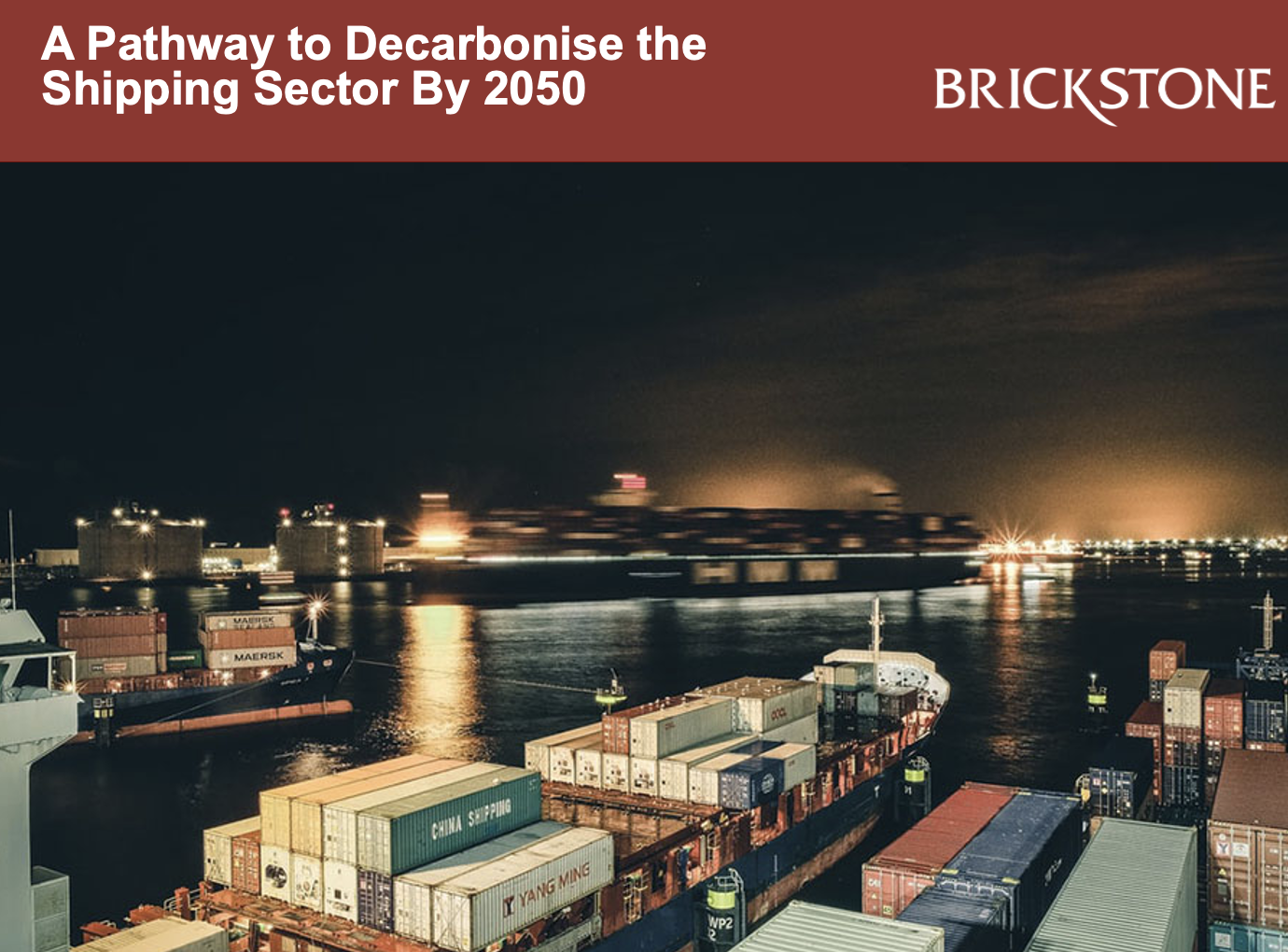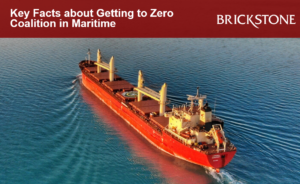A Pathway to Decarbonise the Shipping Sector By 2050
IRENA’s report affirms that urgent action is needed to accelerate the pace of the global energy transition and the decarbonisation of the global economy. The publication analyses the technology readiness of the renewable fuels suitable for international shipping. This report also explores the options and actions needed to progress towards a decarbonised maritime shipping sector by 2050, and seeks to identify a realistic mitigation pathway to reach the climate goal of limiting global temperature rise to 1.5°C and bringing CO2 emissions closer to net zero by mid-century.
This article by Brickstone Africa reviews IRENA’s publication on how to decarbonise the shipping sector by 2050, highlighting key facts and insights.
Decarbonising the Shipping Sector
Urgent action is necessary to accelerate the pace of the global energy transition and the decarbonisation of the global economy. Green hydrogen-based fuels are set to be the backbone for the sector’s decarbonisation.
International shipping comprises 70% of global shipping energy emissions. If the international shipping sector were a country, it would be the sixth- or seventh-largest CO2 emitter. The sector enables 80-90% of global trade. Bulk and container carriers, and oil tankers account for 20% of the global fleet. They are responsible for around 85% of the net GHG emissions associated with the sector.
The International Maritime Organization’s (IMO’s) Fourth GHG study 2020 reported that in 2018 global shipping energy demand accounted for nearly 11 exajoules (EJ), resulting in around 1 billion tonnes of carbon dioxide (CO,) (international shipping and domestic navigation) and 3% of annual global greenhouse gas (GHG) emissions on a CO,- equivalent basis. Fossil fuels. i.e. heavy fuel oil (HFO), marine gas oil (MGO), very low-sulphur fuel oil (VLSFO) and, more recently on a small scale the use of liquefied natural gas NG) current provide up to 99% of the sector’s final energy demand.
Meeting the growing energy demand will be a key challenge for the shipping sector which currently runs almost entirely on fossil fuels.Given the pivotal role of international shipping in the global economy, energy efficiency will not be enough. Renewable energy therefore has a key role to play in decarbonising this sector by mid-century.
International shipping enables 80-90% of global trade and comprises about 70% of global shipping energy emissions. If the international shipping sector were a country, it would be the sixth or seventh-largest CO emitter, comparable to Germany. Yet. international shipping emissions fall outside national GHG emission accounting frameworks.
In this context, IRENA’s report explores the options and actions needed to progress towards a decarbonised maritime shipping sector by 2050 and seeks to identify a realistic mitigation pathway consistent with a wider societal goal of limiting global temperature rise to 1.5°C (degrees Celsius) and bringing CO, emissions closer to net zero by mid-century.
IRENA 1.5°C Scenario suggests a minimum renewable fuels share of 70% to be achieved by 2050. This would result in a CO2 emission reduction of 80% in comparison to 2018 levels. A 1.5°C Scenario is based on four key measures: Indirect electrification by employing e-fuels, employment of advanced biofuels, improvement of vessels’ energy efficiency and reduction of sectoral activity due systemic changes in global trade dynamics.
The report discusses: market dynamics and trends, trade volumes, associated energy demand, and COz emissions; technology readiness and cost of relevant renewable energy fuels; the long-term decarbonisation pathway by 2050 and its implications; and enabling actions to raise the decarbonisation ambition.
The following are key facts from the publication:
- The sector’s decarbonisation strategy must involve a combination of energy efficiency and renewable fuels. Starting now, the active adoption of energy efficiency measures will be critical to reduce energy demand and thus CO2 emissions in the immediate term.
- In the short term, advanced biofuels will play a key role in the reduction of CO2 emissions. In the medium and long-term, green hydrogen-based fuels are set to be the backbone for the sector’s decarbonisation.
- Renewable e-ammonia will play a pivotal role; where 183 million tonnes of renewable ammonia for international shipping alone will be needed by 2050 – a comparable amount to today’s ammonia global production.
- While renewable fuels production costs are currently high, in the next decades renewable fuels will become cost competitive and can shield the shipping sector from the volatility that characterizes the fossil fuels market.
- Taking early action is vital. Sector decarbonisation can be accelerated and ambition raised beyond the climate goals by fostering investment in the production of renewable fuels. Stakeholders need to develop broader business models and establish strategic partnerships involving energy-intensive industries, as well as power suppliers and the petrochemical sector.
Down like the complete report here.






